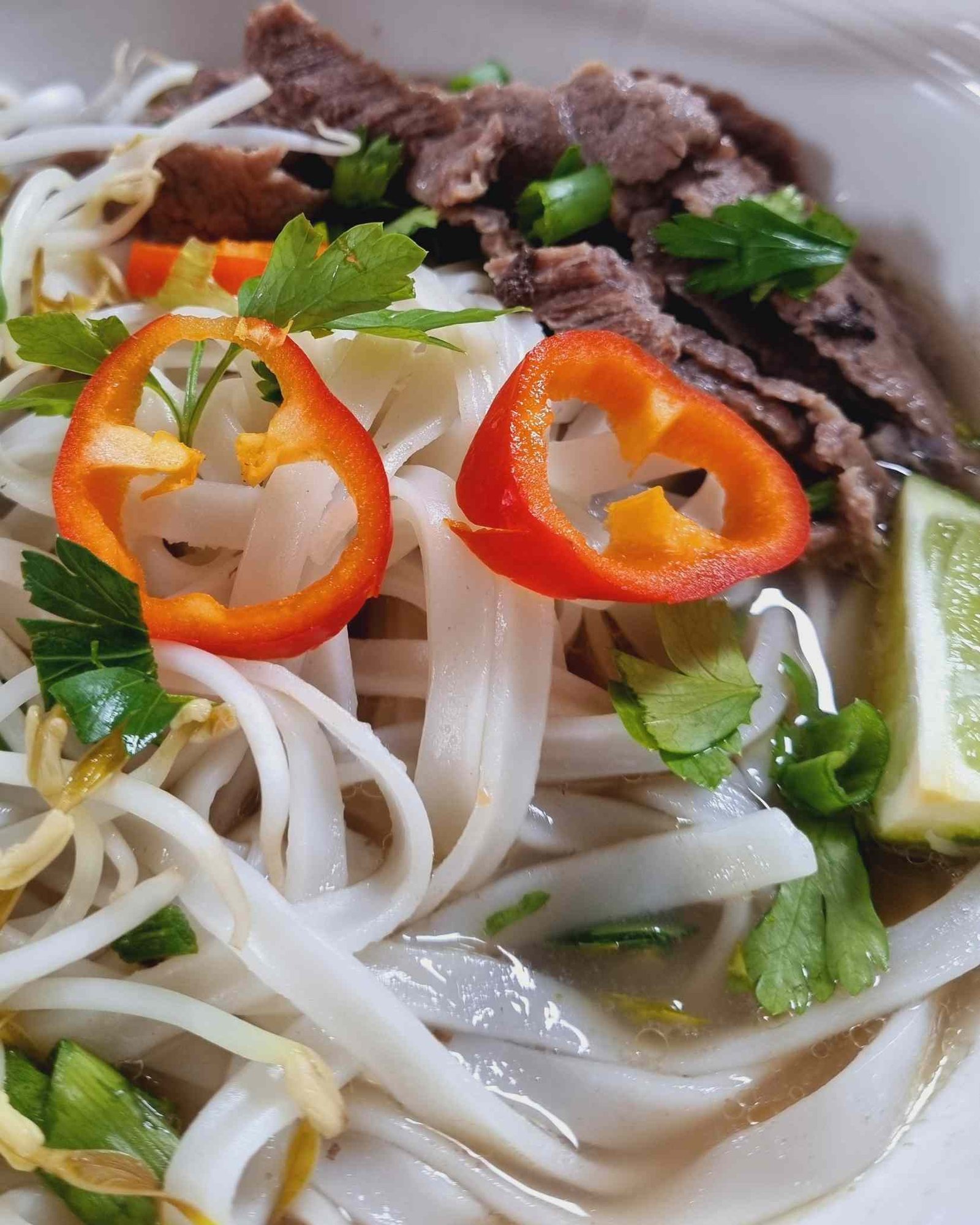
Newsletter Subscribe
Enter your email address below and subscribe to our newsletter

Enter your email address below and subscribe to our newsletter
Pho is a traditional Vietnamese dish that is incredibly flavourful and deeply nourishing. The broth, which is considered the soul of the dish, lies at the center of any bowl of pho. The broth takes a few hours to develop, but the wait is worth it.
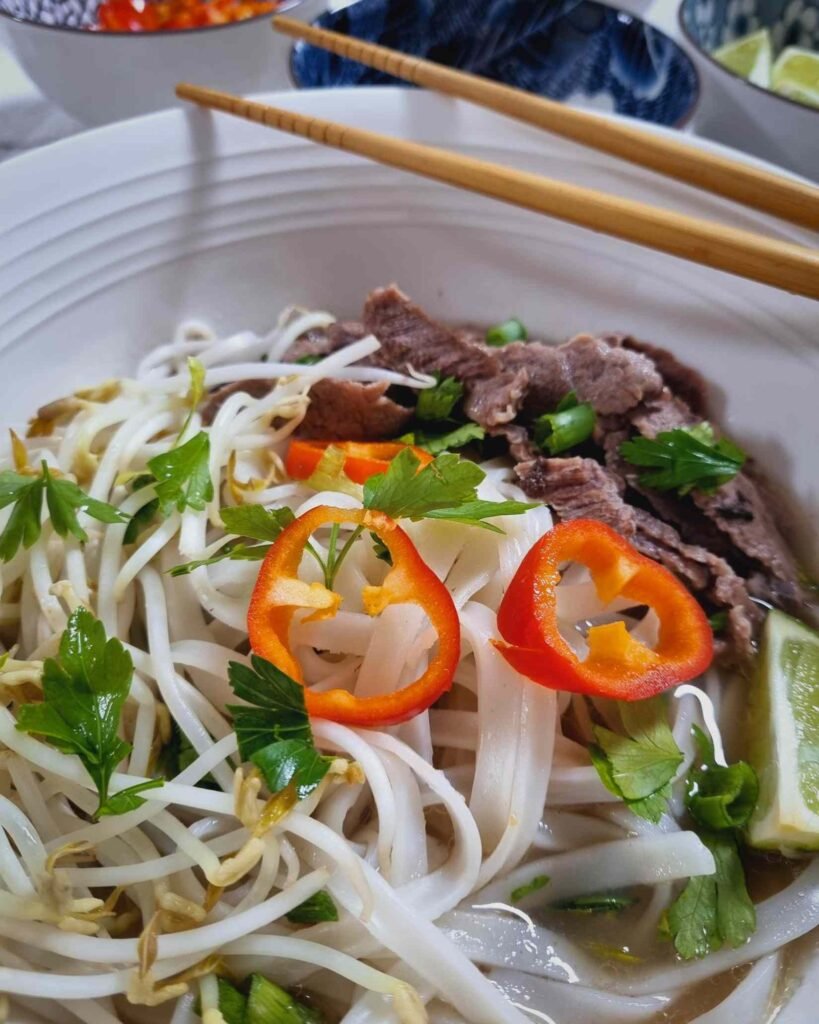
The broth is rich and layered with flavour, created with beef bones and spicy aromatics. In Asia, it is common to eat this dish to cool down, which means that Pho is perfect for hot summer days as well as cool afternoons.
If you’re a huge fan of Pho, you may also enjoy Gomtang or Galbitang, which are quite similar but more beefy in flavour. We’ll be creating those recipes soon. In contrast, Pho is lighter and has a delicate, sophisticated spice profile, whereas ‘Gomtang and Galbitang‘ are thicker with robust beefy flavours. These dishes also pair perfectly with Kimchi.
Pho uses flat, delicate, and tender rice noodles, perfectly suited to absorb the rich broth of this dish. Complemented by the fresh herbs, the tangy citrus notes of the lime, and the mild heat of the sliced red chilies, each spoonful delivers a unique medley of flavours. One of the best parts about this dish is that you can tailor the toppings according to your individual preference.
Coriander, Cumin, Cloves, Sugar, Star Anise, Cinnamon sticks, Bay leaves, Ginger, Garlic Cloves, Fish sauce, Coriander, Red chili, Lemon, Onion, Spring-onion, Sliced beef and bone marrow.
The spices and aromatics used in Pho infuse the dish with many different flavours. For instance, coriander seeds and cumin add a delicate citrus note to the broth with a refreshing aftertaste. Cumin enhances the dish with a slight nuttiness. On the other hand, cloves, along with sugar, contribute a sweet and aromatic complexity.
One of my favourites, star anise, adds a liquorice-like flavour that deepens the broth’s flavour. Cinnamon sticks, combined with bay leaves, add a sweet and woody nuance. Whole cinnamon sticks are highly recommended as they will slowly release the dish’s flavours. Bay leaves contain a mixture of thyme and oregano.
Now, let’s talk about the ginger, garlic cloves, and onions. When these ingredients are caramelized and slightly charred, they add a sweet and mildly barbecue-like taste. Using lots of garlic will not be as pungent as you think. This broth will cook for a long time, and the flavour will mellow out.
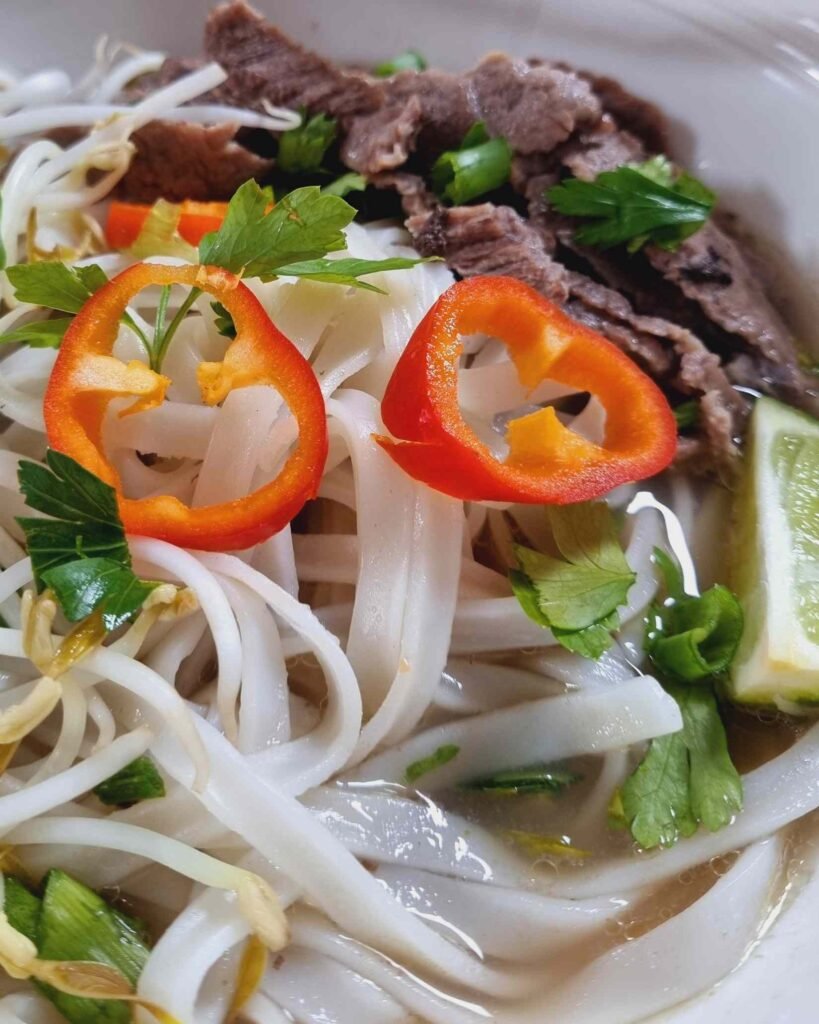
Here’s the part where it gets interesting! Garnishes are one of the most essential elements for creating a perfect bowl of Pho! Even though Coriander is used in the traditional recipe, we prefer fresh parsley over fresh Coriander. However, you can use whichever you choose in your Pho. Spring onions and lime wedges are absolute must-have ingredients. Some people throw in fresh Thai basil to add more herbaceousness. Mung bean sprouts are also used, but they add a bit of crunchiness.
Beef bones are often used to make bone broth, so this dish will be loaded with collagen—a win-win for everyone! We recommend beef marrow bones, knuckle bones, oxtail bones, rib bones, and neck bones. Use whichever combination you can find and whatever is affordable for you.
Pho also uses thinly sliced pieces of meat. Here are some great options: eye of Round, Sirloin, Flank, Beef Tendon, and Brisket. Make sure that the meat is cut thinly; you can ask your butcher to slice it paper-thin. These slivers of meat add texture to the Pho. Surprisingly, the tastiest meat comes from the ones on the beef bones, mainly because it is cooked for a more extended period.
When it comes to noodles, opt for rice noodles such as Banh Pho if these are not available. China and South Korea also produce incredible rice noodles. Other options include Mung bean noodles and vermicelli noodles. Not a fan of noodles in your Pho? You can also enjoy your Pho with white rice.
Prepare the meat: Thoroughly wash the beef bones. Drain and rinse a few times. This step will significantly reduce the amount of scum (greyish foam) as well as the coagulated blood and any other impurities that come out of the meat bones. Wash and slice the steak of your choice. It is easier to cut the steak when it is slightly frozen. Place the sliced steak in the fridge.
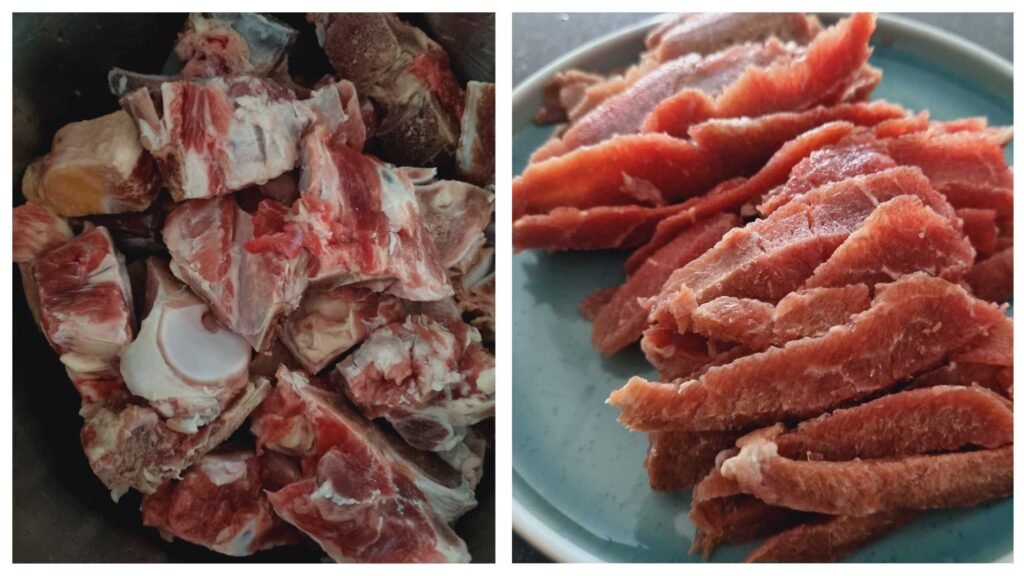
Preboil the beef bones: Add meat with the bones to a pot of water and cook for 180 minutes. Remove any scum on the top of the broth. (There won’t be much if you follow step one). Scoop out any floating oil using a ladle with ice cubes. This step will pick up much of the fat floating on the pho broth.
Gather the ingredients such as Coriander seeds, star anise, cardamom pods, cinnamon stick, bay leaves and fennel seeds. Pour 1/4 cup of fish sauce into a cup.
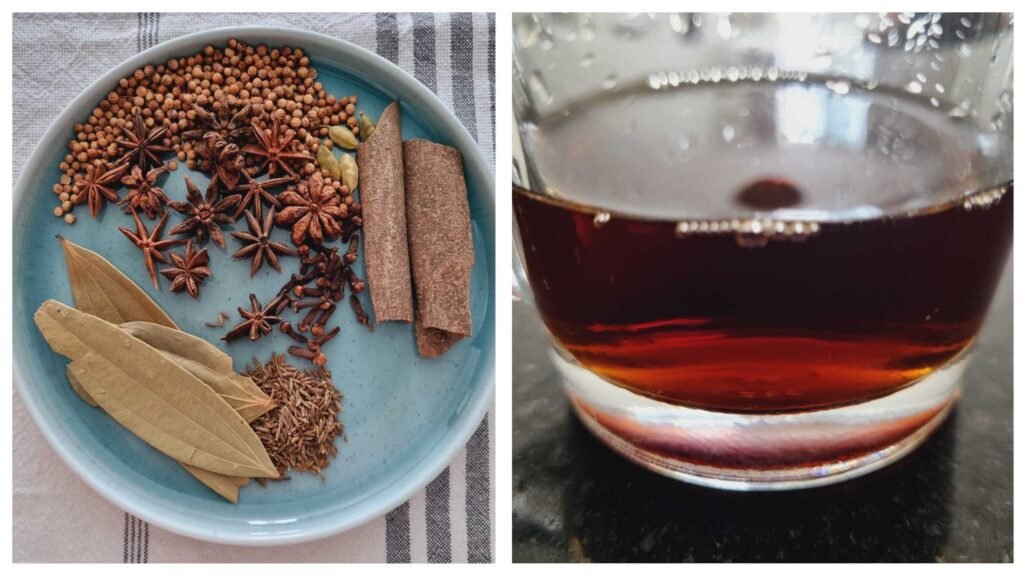
Pan toast the Spices: Add the coriander, Star anise, cinnamon sticks, cardamom pods, fennel seeds, and cloves to a pan and toast the spices for two to three minutes. Add it to the pot along with the fish sauce.
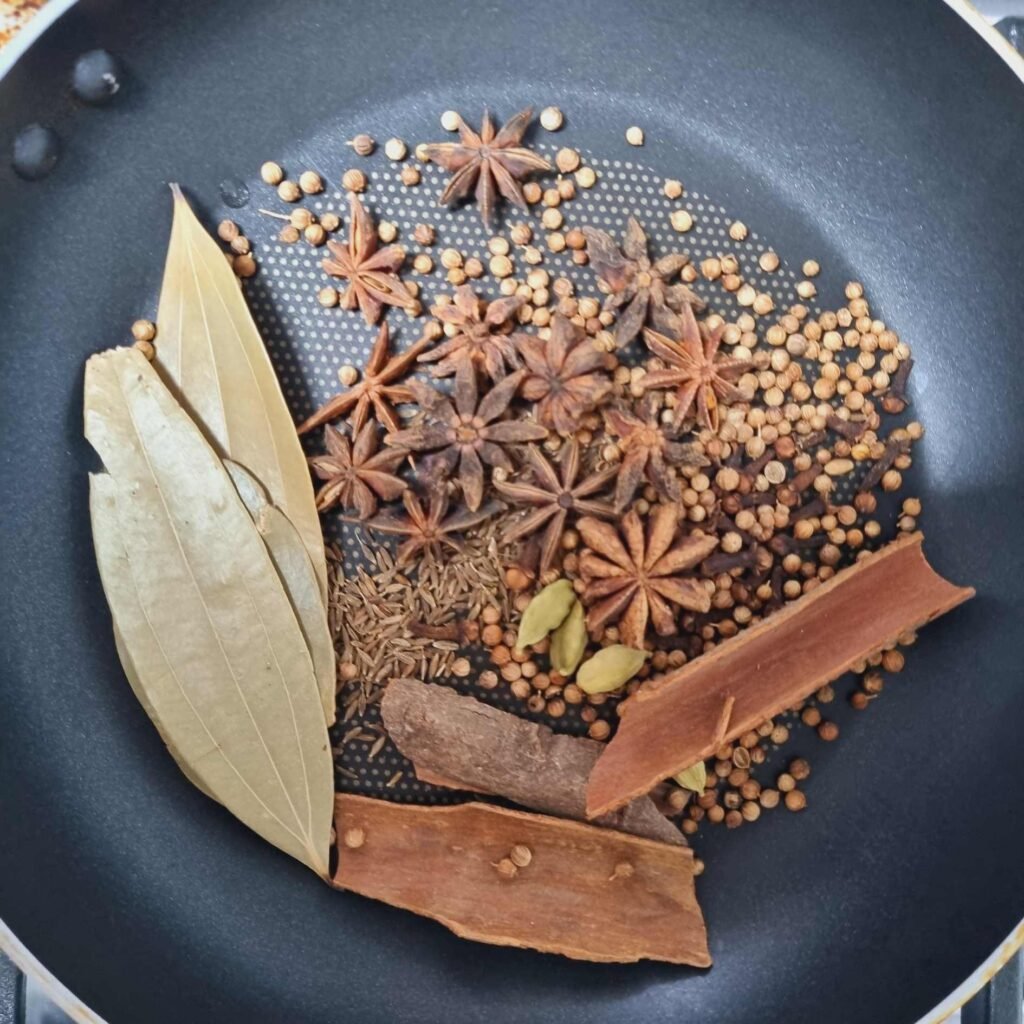
Aromatics: Slice an onion in quarters and peel many garlic cloves (Approximately two bunches). Peel a large piece of garlic and slice the garlic horizontally. Char on a pan on medium-high heat, stirring often to ensure it does not burn. Thereafter, add the spices into the pot.
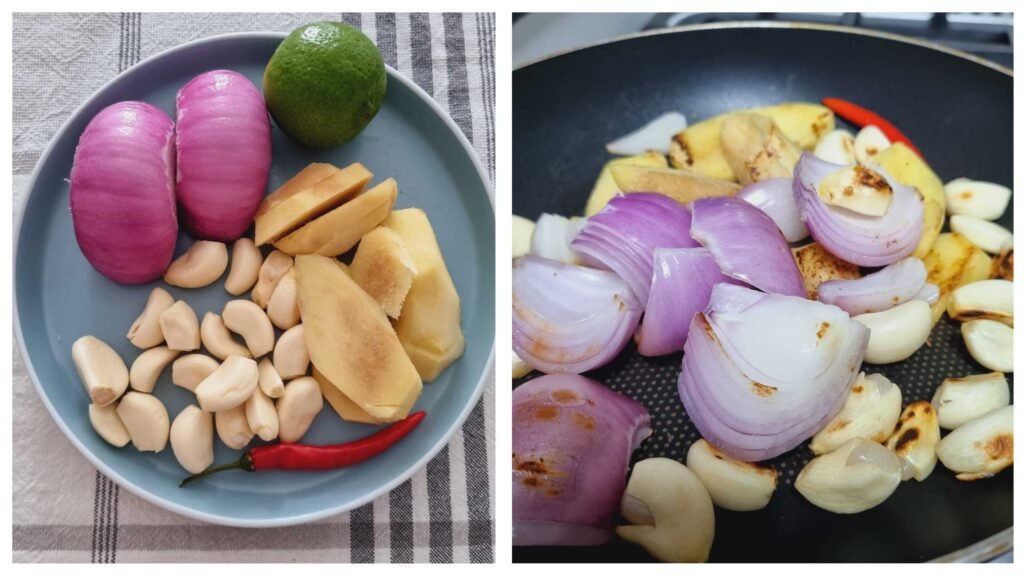
Add the steak: After three hours, remove the sliced steak from the fridge and add it to the pot. Slice up the green onions and parsley. Slice the red chilies and the lime. Wash the mung bean sprouts.
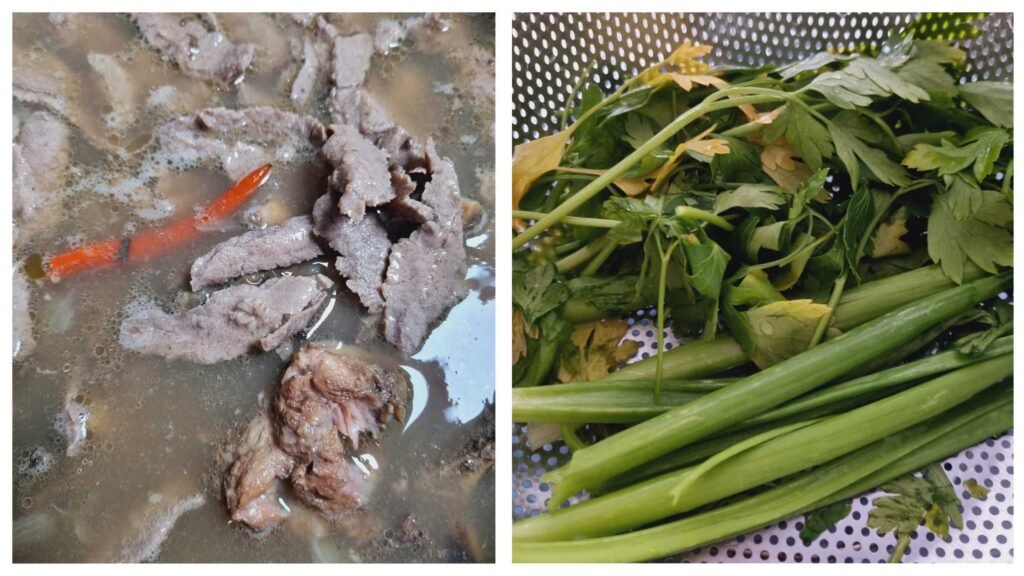
Cook the rice noodles: Bring a pot of water to the boil on medium-high heat. When the water has reached boiling point, add the rice noodles and cook for approximately eight minutes. Thereafter, drain and set aside. Add the desired amount of rice noodles into a bowl. Ladle a few scoops of pho broth on top of the noodles. Add the sliced steak, spring onions, and red chilies, and squeeze a few lime wedges onto the pho. Enjoy!
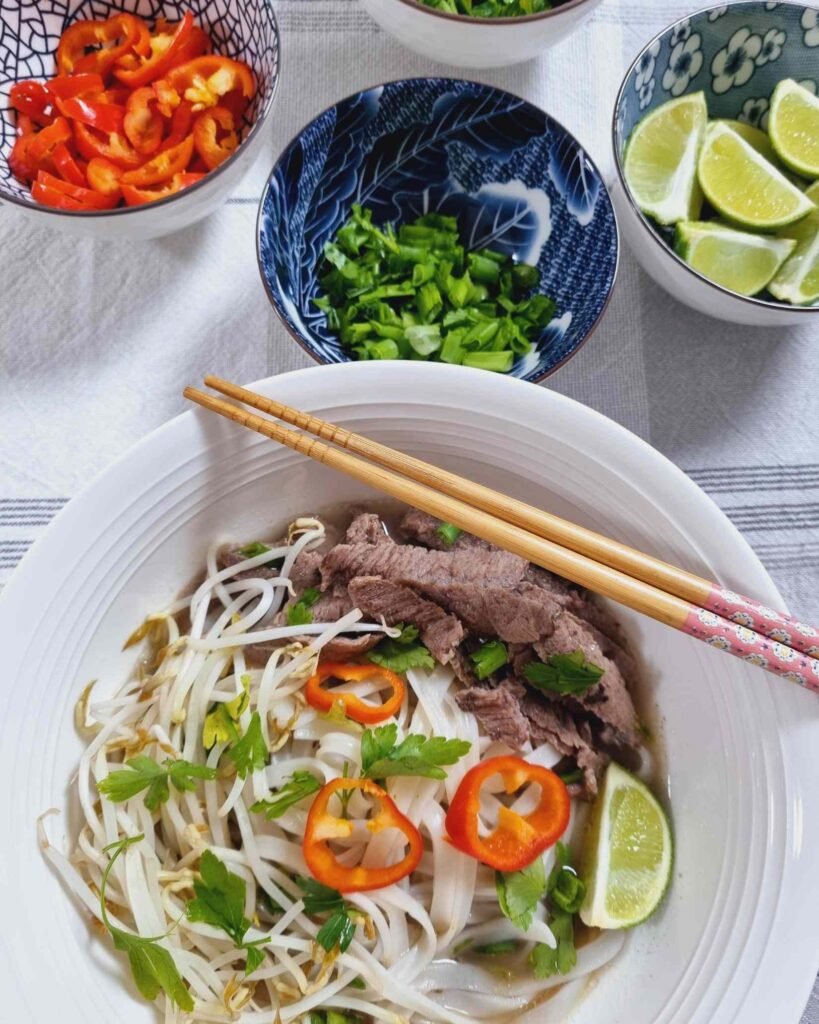
Use High-Quality Beef Bones. Do not leave out the spices, such as star anise, cloves, and cinnamon. Make sure the broth simmers for several hours, skimming off excess impurities or scum to ensure a clear broth. The Toppings enhance the flavor and add crunch to the meal.
We suggest using Thai basil, cilantro, lime, and thinly sliced jalapenos. Do not add the rice noodles to the pot; cook them separately. Condiments such as hoisin sauce, chili oil, and Sriracha can make a world of difference to Vietnamese pho. Try our other Asian recipes.
Let your broth cool before transferring it to airtight containers. Broth can be stored for 3 to 4 days. (Freeze for longer storage) Don’t cook large batches of noodles; make them fresh to eat with your re-heated broth.
We recommended Vietnamese pickles such as Daikon in vinegar. An alternative is also Korean pickles, such as fermented Kimchi. For extra crunch, consider crispy fried onion.
